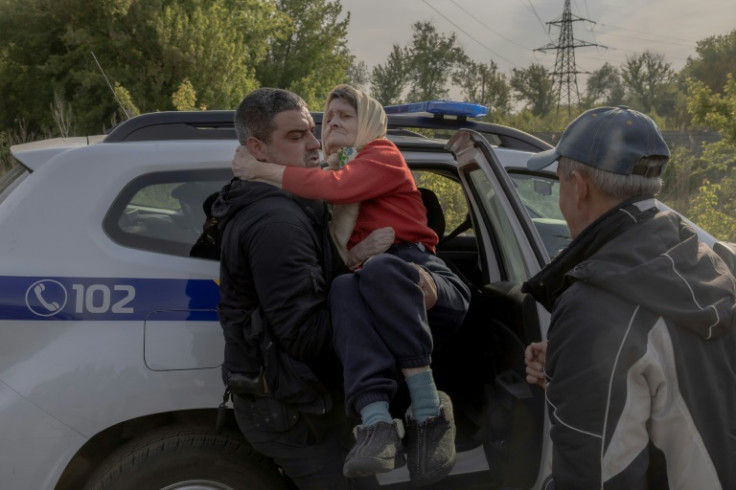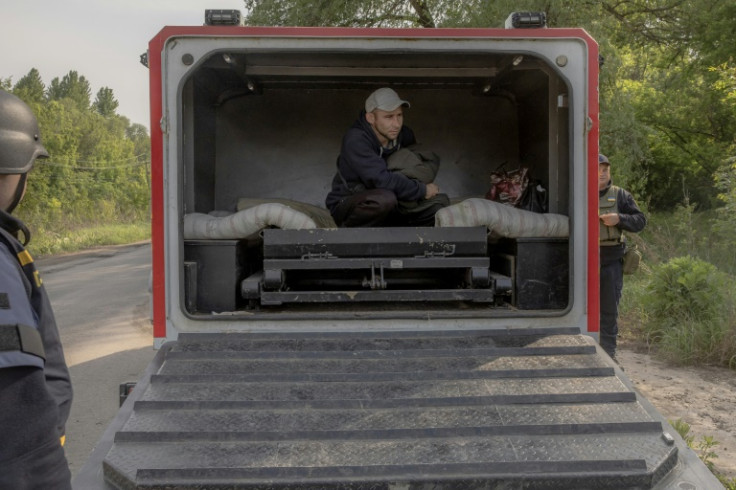
US Secretary of State Antony Blinken arrived Tuesday in Kyiv on an unannounced visit to assure Ukraine of continued American support and the flow of much-needed weapons as Russia presses on with its new offensive in the northeastern Kharkiv region.
Blinken arrived by overnight train from Poland and was due to meet with Ukrainian President Volodymyr Zelensky in his fourth visit to Kyiv since the start of the Russian invasion in February 2022, according to an AFP journalist accompanying him.
His trip comes just weeks after the US Congress finally approved a $61 billion financial aid package for Ukraine after months of political wrangling, unlocking much-needed arms for the country's stretched troops.
"First this trip is to send a strong signal of reassurance to the Ukrainians who are obviously in a very difficult moment both with grinding battle on the Eastern Front but also with the Russians now expanding some cross-border attacks into Kharkiv," a senior US official, who spoke on condition of anonymity, told reporters aboard the train.
Blinken intends to detail how US aid will "be executed in a fashion to help shore up their defences and enable them to increasingly take back the initiative on the battlefield," the official said.
The White House said Monday it was doing "everything" possible to rush weapons to Ukraine.
US National Security Advisor Jake Sullivan told reporters a new arms package would be announced "in the coming days."
A surprise Russian ground offensive in the Kharkiv region that has forced thousands to evacuate and pushed Kyiv to mobilise reinforcements.
The Ukrainian army acknowledged Russia was "achieving tactical success" but Zelensky stressed Kyiv had sent reinforcements to Kharkiv and that "our counterattacks are ongoing".
"We are getting more and more results, destroying the occupier's infantry and machinery," he said in a Monday evening address.
"Our task is crystal clear: to thwart Russia's attempt to expand the war".
Zelensky said Kyiv had also noted strikes and "hostile activity against (the) Sumy and Chernihiv regions" in northern Ukraine.
In the east of the country, where several areas had been subject to "intense enemy fire", Ukrainian forces had changed their positions "to save the lives of our defenders" and were planning to regroup units, the army said late Monday.
Ukraine's security council chief Oleksandr Lytvynenko said Moscow had massively upped its troop deployment for the new offensive in the Kharkiv region.
"There are a lot of Russians, quite a lot. About 50,000 were on the border. Now there are much more than 30,000 coming," he told AFP on Monday.
However, he said "we don't see any threat of assault on the city of Kharkiv", around 30 kilometres (20 miles) from the combat zone.
Russia's defence ministry said its troops had "improved the tactical position and dealt a blow to (Ukrainian) manpower" around border villages, including Lyptsi, and the town of Vovchansk.
Kateryna Stepanova, 74, who fled Lyptsi with her son, said several bombs had hit her street.
"We weren't going to leave... but now this. Thankfully, we're alive," she said, sitting in a minibus at a gathering point for evacuees.
"They are shelling the villages, firing everything they can," Sergiy Kryvetchenko, deputy head of the Ukrainian military administration in Lyptsi, told AFP.
Guided aerial bombs are falling "like rain" said one serviceman, who was resting after fending off Russian assaults in Lyptsi.
An overnight strike on Kharkiv wounded two people, regional governor Oleg Synegubov said Tuesday on Telegram.
In Russia, the defence ministry said air defences had intercepted 25 Ukrainian rockets in the Belgorod region.
Elsewhere, in the Volgograd region, freight train carriages were derailed in Kotluban station due to the "intervention of unauthorised persons," Russian news agencies said Tuesday.
No details were given about the incident or who caused it.
Kyiv did not claim responsibility but a Ukrainian advisor to the mayor of Mariupol, which was seized by Russia in spring 2022, called it "good news".
Kotluban is about 300 kilometres from the border with Ukraine, and the Volgograd region is sometimes the target of drone attacks launched by the Ukrainian army.





.png?w=600)




